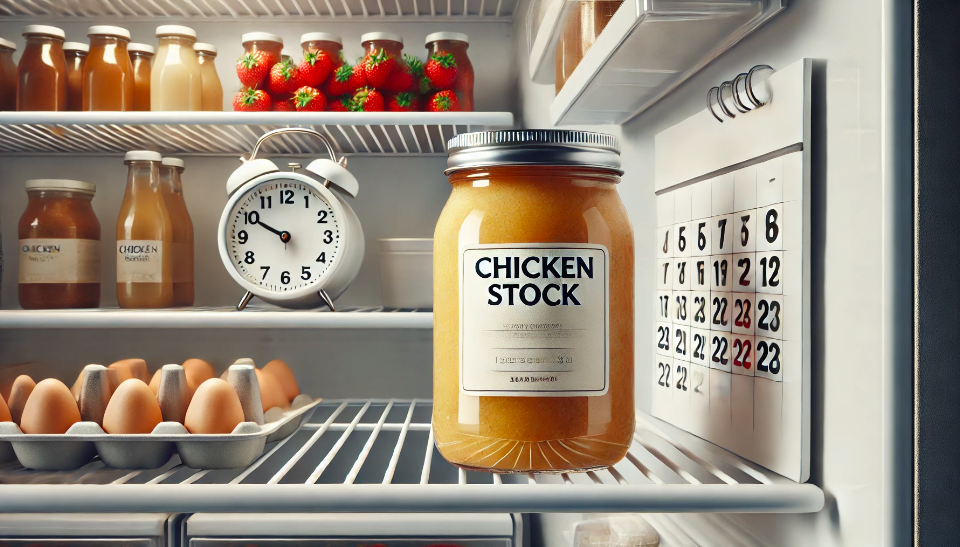
Chicken stock typically lasts 3 to 4 days in the fridge when stored in an airtight container. To maintain its freshness and safety, it should be kept at a consistent temperature of 40°F (4°C) or below. After this period, the risk of bacterial growth increases, making it unsafe to consume. Always check for any signs of spoilage before using it.
What Is Chicken Stock And Its Storage Needs?
Chicken stock is a flavorful liquid made by simmering chicken bones, meat, vegetables, and seasonings in water. It’s used as a base for soups, sauces, and other dishes. Because it contains perishable ingredients, proper storage is crucial to prevent bacterial contamination. After cooking, chicken stock should be cooled to room temperature quickly, ideally within two hours, and then transferred to an airtight container before refrigerating. If left at room temperature for longer than two hours, it becomes a breeding ground for bacteria, such as Salmonella or Listeria, which can cause foodborne illnesses.
Signs Your Chicken Stock Has Gone Bad
Spoiled chicken stock is unsafe to consume, and these signs can indicate it has gone bad:
- Foul Smell: A sour, rancid, or off odor is the most obvious sign of spoilage.
- Unusual Texture: If the stock has become slimy or has visible sediment not related to ingredients, it may be spoiled.
- Cloudy Appearance: While stock can be naturally cloudy, excessive cloudiness or discoloration, such as a green or grayish tint, indicates spoilage.
- Bubbling or Fermentation: If you notice bubbles forming without reheating or a fizzy texture, the stock may have fermented and is unsafe to use.
- Mold Growth: Any visible mold on the surface, container, or lid is a clear indicator that the stock should be discarded.
Tips To Properly Store Chicken Stock In The Fridge
- Use Airtight Containers: Store the stock in clean, airtight containers or jars to prevent contamination and odors from other foods.
- Cool Quickly: Divide the stock into smaller portions to cool it quickly before refrigerating.
- Label and Date: Always label the container with the storage date to keep track of its freshness.
- Avoid Overfilling: Leave some space at the top of the container to allow the stock to expand slightly as it cools.
- Store on Middle Shelf: Keep the stock on a consistent shelf in the fridge to avoid temperature fluctuations.
Can You Freeze Chicken Stock For Longer Shelf Life?
Yes, chicken stock can be frozen to extend its shelf life to up to 6 months. Use freezer-safe containers, resealable freezer bags, or ice cube trays to portion and freeze the stock. Ensure the stock is completely cooled before freezing to prevent ice crystals from forming. Leave some space in the container for expansion. Label each container with the freezing date for easy tracking. When thawing, always do so in the fridge overnight or use the defrost setting on your microwave. Avoid refreezing stock that has already been thawed.
How To Safely Use And Reheat Refrigerated Chicken Stock
When reheating chicken stock, transfer only the amount needed to a clean saucepan or microwave-safe container. Heat it to an internal temperature of 165°F (74°C) to kill any bacteria that may have developed. Avoid reheating the entire batch repeatedly, as this increases the risk of contamination. If the stock has been refrigerated for more than four days or shows any signs of spoilage, discard it immediately. Never consume stock that smells off or has an unusual appearance, even if reheated.